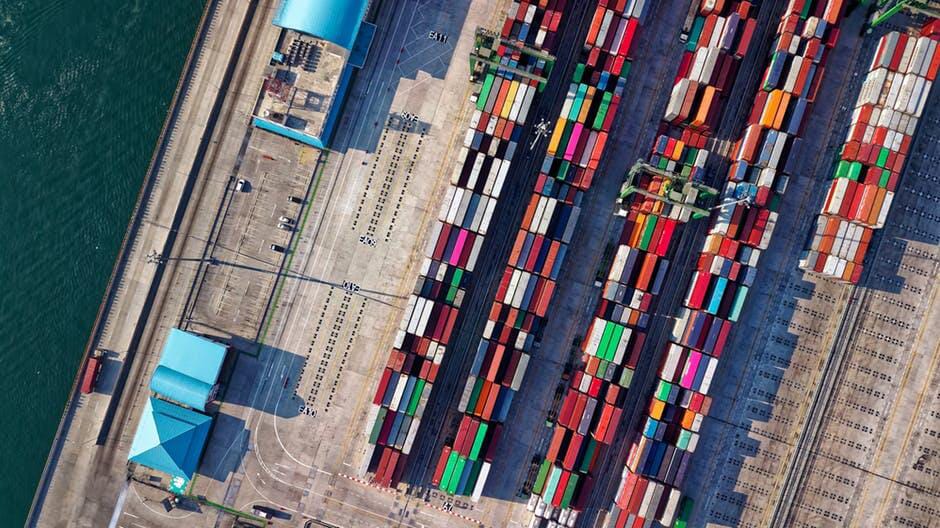Late deliveries, misplaced cargo, and inefficient tracking are nightmares for businesses reliant on the cargo USA supply chain. Every delay disrupts schedules, incurs additional costs, and frustrates customers.
Imagine the chaos when a crucial shipment goes off the grid, or when outdated systems fail to provide real-time updates. These issues aren’t just minor hiccups. They’re major obstacles that hinder productivity and profitability.
Thankfully, cutting-edge technologies are stepping in to solve these persistent problems. Innovations in logistics, tracking, and efficiency are ensuring businesses stay competitive and customers remain satisfied.
Keep reading to discover how these technological advancements are revolutionizing the cargo supply chain in the USA.
The Current Cargo Supply Chain Landscape
The cargo supply chain has evolved significantly over the years. Traditionally, it relied on manual processes, paperwork, and human oversight.
Freight forwarders in California, for instance, would coordinate with various carriers, warehouses, and customs officials through:
- Phone calls
- Faxes
- Physical documents
These methods, while foundational, often led to delays, errors, and inefficiencies.
Today’s landscape still faces significant challenges. The rapid growth of e-commerce demands faster and more reliable deliveries. There’s also increased pressure to reduce costs and improve environmental sustainability.
Moreover, disruptions like natural disasters, geopolitical issues, and the recent pandemic have exposed the vulnerabilities of traditional supply chain models. The need for a more resilient and efficient system has never been more urgent.
Technological Innovations in Logistics
To address these challenges, the cargo USA supply chain is embracing technological innovations. Automation and robotics are revolutionizing logistics operations.
Automated guided vehicles (AGVs) and robotic arms are now common in warehouses and distribution centers. These robots can work around the clock, handling tasks such as sorting, packing, and palletizing with minimal human intervention.
Additionally, the rise of autonomous vehicles is set to transform cargo transport.
Companies like Tesla and Waymo are developing self-driving trucks that promise safer and more efficient long-haul transportation. These vehicles can operate continuously, reducing delivery times and costs.
Moreover, transportation and logistics companies are leveraging advanced software to streamline operations. Warehouse management systems (WMS) and transportation management systems (TMS) provide real-time visibility into inventory and shipments.
This visibility helps companies:
- Optimize routes
- Reduce empty miles
- Improve overall efficiency
Advanced Tracking and Monitoring Systems
The Internet of Things (IoT) plays a crucial role in real-time tracking. IoT devices, embedded in containers and vehicles, provide continuous updates on the location and condition of cargo. This real-time information allows companies to:
- Monitor shipments
- Predict delays
- Make proactive adjustments
GPS technology is another critical
component of modern tracking systems. It enables precise location tracking to ensure that cargo transport is closely monitored from origin to destination. This technology ensures that perishable goods like food and pharmaceuticals are transported under optimal conditions.
Radio-frequency identification (RFID) is also widely used in cargo monitoring. RFID tags, attached to product and goods transport services, provide accurate and real-time data on their movement. This technology enhances inventory management and reduces the risk of theft or loss.
For instance, Walmart uses RFID technology to track products in its supply chain. The result is more efficient inventory management and reduced out-of-stock situations.
Enhancing Efficiency with Artificial Intelligence
AI-driven demand forecasting uses historical data and machine learning algorithms to predict future demand accurately. This capability helps companies maintain optimal inventory levels, reducing both excess stock and stockouts.
For example, Amazon uses AI to predict demand and manage inventory to ensure that products are available when customers need them.
Machine learning, a subset of AI, is also transforming route optimization and predictive maintenance. AI algorithms analyze vast amounts of data to identify the most efficient routes for cargo transport.
This optimization:
- Reduces fuel consumption
- Lowers costs
- Improves delivery times
UPS, for instance, uses an AI-based system called ORION (On-Road Integrated
Optimization and Navigation) to optimize delivery routes, saving millions of miles and gallons of fuel annually.
Predictive maintenance is another area where AI shines. By analyzing data from sensors on vehicles and equipment, AI can predict when maintenance is needed before a breakdown occurs. This proactive approach minimizes downtime and ensures the smooth operation of the supply chain.
Companies like DHL use AI-driven predictive maintenance to keep their fleets in top condition, reducing unexpected repairs and improving reliability.
Blockchain for Supply Chain Transparency
Blockchain technology is revolutionizing the cargo USA supply chain by ensuring data security and transparency. Blockchain creates an immutable ledger of transactions to make it nearly impossible to alter data without detection. This feature is particularly valuable in supply chain management, where trust and accuracy are paramount.
Blockchain also facilitates smart contracts, which automatically execute and enforce terms when predefined conditions are met. These contracts streamline processes and reduce the need for intermediaries.
In agriculture shipping, for example, blockchain can ensure that farmers receive timely payments once their produce reaches the destination, without the delays associated with traditional payment methods.
The Role of Big Data Analytics
Big data analytics is another crucial technology transforming the cargo USA supply chain. By analyzing large volumes of data, companies can make informed decisions that enhance efficiency and profitability. Big data provides insights into patterns and trends to help businesses optimize their operations.
For example, analyzing data on shipping routes, weather conditions, and fuel consumption can help companies identify the most efficient paths for cargo transport. This optimization reduces costs and improves delivery times.
Data-driven decision-making also plays a significant role in inventory management. By analyzing sales data, companies can predict demand and adjust their inventory levels accordingly. This approach reduces the risk of stockouts and excess inventory, leading to cost savings and improved customer satisfaction.
Retail giants like Walmart and Target leverage big data analytics to fine-tune their inventory management practices and ensure products are available when and where customers need them.
The Backbone of Modern Cargo USA
As we explore the advancements
transforming cargo USA operations, it’s clear that technology is the driving force behind more efficient and transparent supply chains. From the integration of AI and IoT to the implementation of blockchain, these technologies are not just enhancements; they’re essential for the future of cargo transport.
For a deeper dive into how these innovations can optimize your logistics strategy, check out more insights on our blog.




